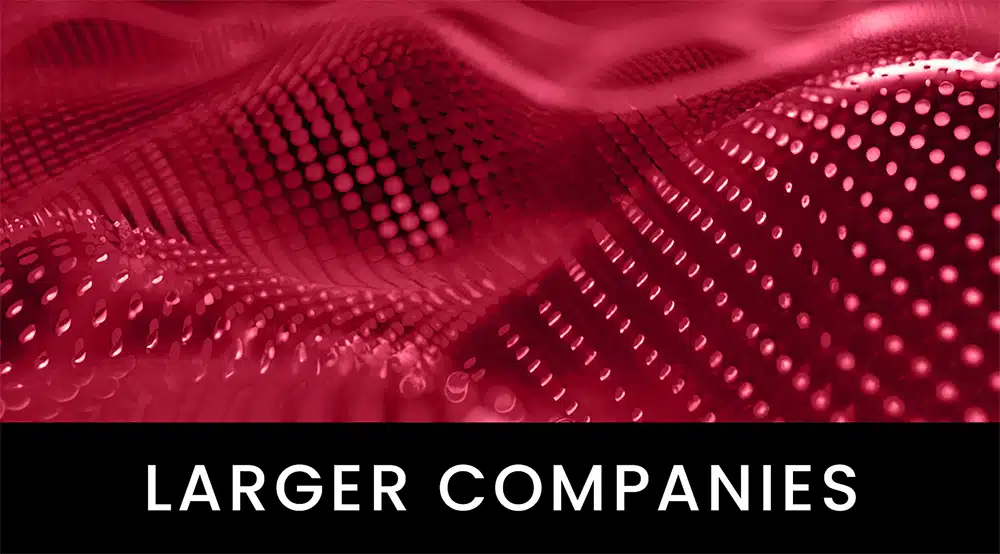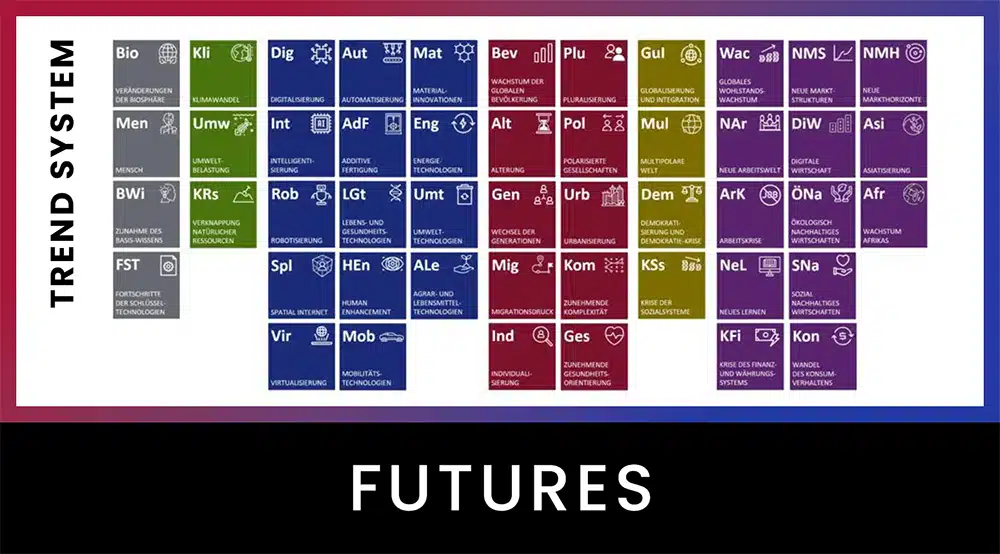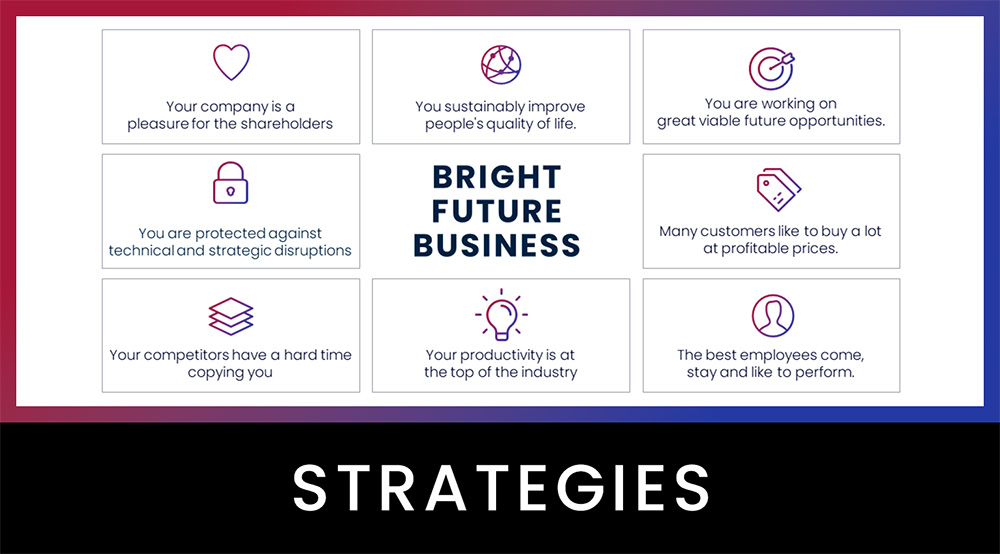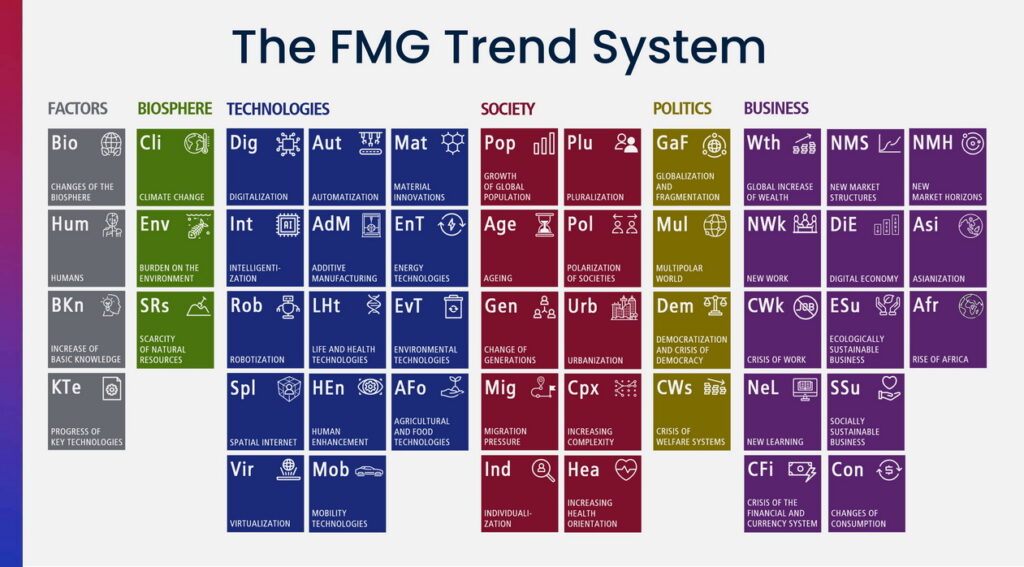Sings the song of sustainability … but fights hard against it in the background.
This report from InfluenceMap reveals some interesting information that I dare to interpret:
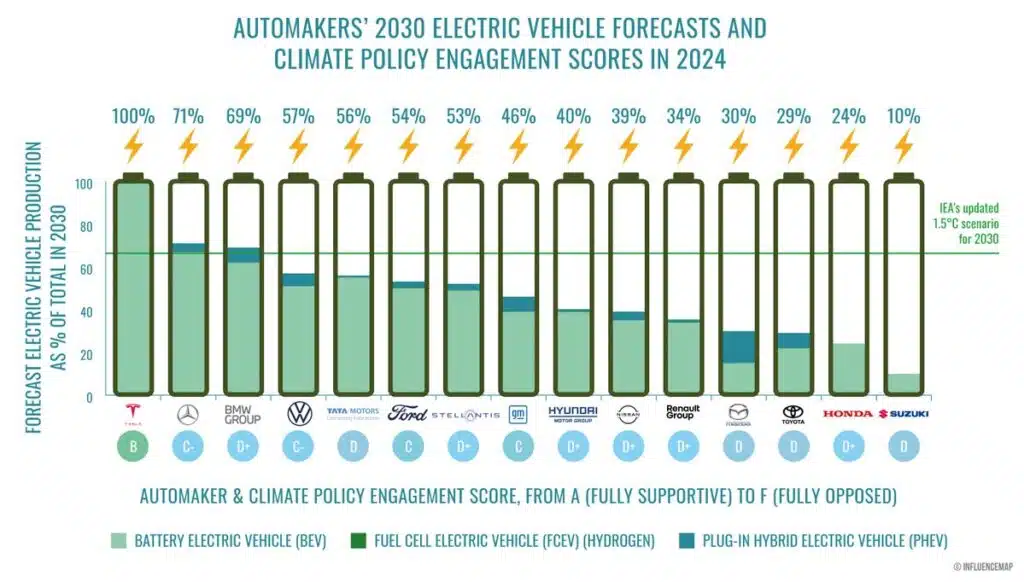
-
This diagram can be read as follows: Start from the right and go to the left to see a chronological order of failure. Take their BEV exposure as a percentage, subtract it from 100, and you have some sort of probability of their failure (bankruptcy, takeover or nationalization).
-
All traditional car manufacturers are lobbying against the rapid introduction of electric vehicles (EVs). All of them, every single one. And successfully so. They all portray themselves as EV and sustainability leaders, but act to the contrary. They fear for their short-term profitability, making their long-term survival even less likely. They lobby to continue polluting our air with carcinogenic emissions. Oh yes, and CO2.
-
German car manufacturers are pretty well in line with what is needed. Good, but far from being leaders. Mercedes recently slashed its ambitions. And no, it’s not for lack of demand. Their EV sales have recently risen by more than 60%. Worldwide growth this year is also over 20%. It’s because they are losing money on BEVs because they started too late and now lack scale. Ford lost over USD 100,000 per electric car sold in 2024. Per vehicle!
-
Japanese car manufacturers, above all Toyota, are the most vehement opponents of EVs. No wonder, as their president believes that BEVs will never achieve more than 30% market share. Fun fact: China has already passed this mark. Toyoda (the boss) claims (falsely) that there is not enough lithium. It is a clear lie. Almost all research institutions say that there are sufficient quantities of all the necessary material resources. And that recycling will cover almost all demand in the long term.
-
Even the loudest proponents of fossil fuel vehicles are not planning a large proportion of plug-in hybrids. Even they do not see them as a viable solution.
-
They are planning practically no hydrogen fuel cell vehicles in the future. I think that even this clear fact will not convince the fans of hydrogen for ground transportation.
-
Note that no Chinese automakers are included. So if you think BEVs won’t capture the vast majority of the market by around 2030 with these plans, don’t forget the Chinese and Tesla.




